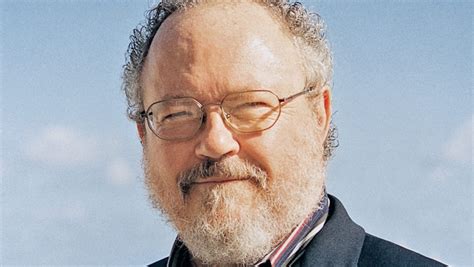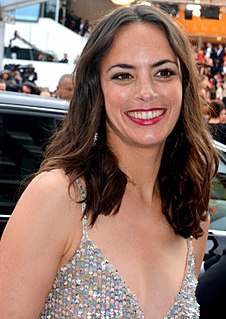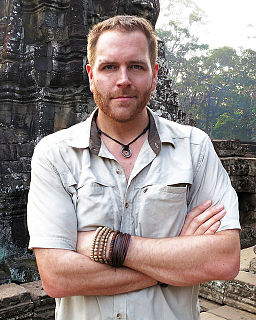A Quote by John Dryden
Chaucer followed Nature everywhere, but was never so bold to go beyond her.
Related Quotes
It was a bold, wild life for a faerie - most never even left their forests - but she was a bold, wild lass, and so were her daughter and granddaughter after her, and their place in the world was everywhere and nowhere, like gypsies on wing. No home had they but their caravans and campfires, and no family but the one they'd cobbled together of crows, creatures and kindred souls they'd met on their endless journey round and round the world.
Nature! We live in her midst and know her not. She is incessantly speaking to us, but betrays not her secret. We constantly act upon her, and yet have no power over her. Variant: NATURE! We are surrounded and embraced by her: powerless to separate ourselves from her, and powerless to penetrate beyond her.
English literature, from the days of the minstrels to the Lake Poets,--Chaucer and Spenser and Milton, and even Shakespeare, included,--breathes no quite fresh and, in this sense, wild strain. It is an essentially tame and civilized literature, reflecting Greece and Rome. Her wildness is a greenwood, her wild man a Robin Hood. There is plenty of genial love of Nature, but not so much of Nature herself. Her chronicles inform us when her wild animals, but not the wild man in her, became extinct.
It occurred to Dr. Lecter in the moment that with all his knowledge and intrusion, he could never entirely predict her, or own her at all. He could feed the caterpillar, he could whisper through the chrysalis; what hatched out followed its own nature and was beyond him. He wondered if she had the .45 on her leg beneath the gown. Clarice Starling smiled at him then, the cabochons caught the firelight and the monster was lost in self-congratulation at his own exquisite taste and cunning.
[...] endless action and reaction. Those beautifully rounded pebbles which you gather on the sand and which you hold in your hand and marvel at their exceeding smoothness, were chiseled into their varies and graceful forms by the ceaseless action of countless waves. Nature is herself a great worker and never tolerates, without certain rebuke, any contradiction to her wise example. Inaction is followed by stagnation. Stagnation is followed by pestilence and pestilence is followed by death.
Nothing comes to pass in nature, which can be set down to a flaw therein; for nature is always the same, and everywhere one and the same in her efficacy and power of action: that is, nature's laws and ordinances, whereby all things come to pass and change from one form to another, are everywhere and always the same; so that there should be one and the same method of understanding the nature of all things whatsoever, namely, through nature's universal laws and rules.
A split personality can never become non-greedy. It can try, but it can never become. A split personality can never go beyond anger. It can try, but it can never go beyond. A split personality can never go beyond sex. It can fight. So many monks in the monasteries are doing it. They don't go beyond sex; at the most their sexuality becomes perverted, their love becomes poisoned.
We make assertions and denials of what is next to [the Divine Nature], but never of It, for It is both beyond every assertion, being the perfect and unique cause of all things, and, by virtue of Its preeminently simple and absolute nature, free of every limitation, beyond every limitation; it is also beyond every denial.
The magnificent thing about her [Amelia Earhart] is, in the eyes of the world, she simply never died. Her fear never witnessed, her failure never recorded, her shiny twin-engine Electra never recovered. Earhart's legacy of inspiration is amplified because her adventure is perpetual. We don't think of her as dead; we think of her as missing. She is forever flying, somewhere beyond Lae, over that limitless blue horizon.
Let man then contemplate the whole of nature in her full and grand majesty... No idea approaches it. We may enlarge our conceptions beyond all imaginable space; we only produce atoms in comparison with the reality of things. It is an infinite sphere, the center of which is everywhere, the circumference nowhere.






































